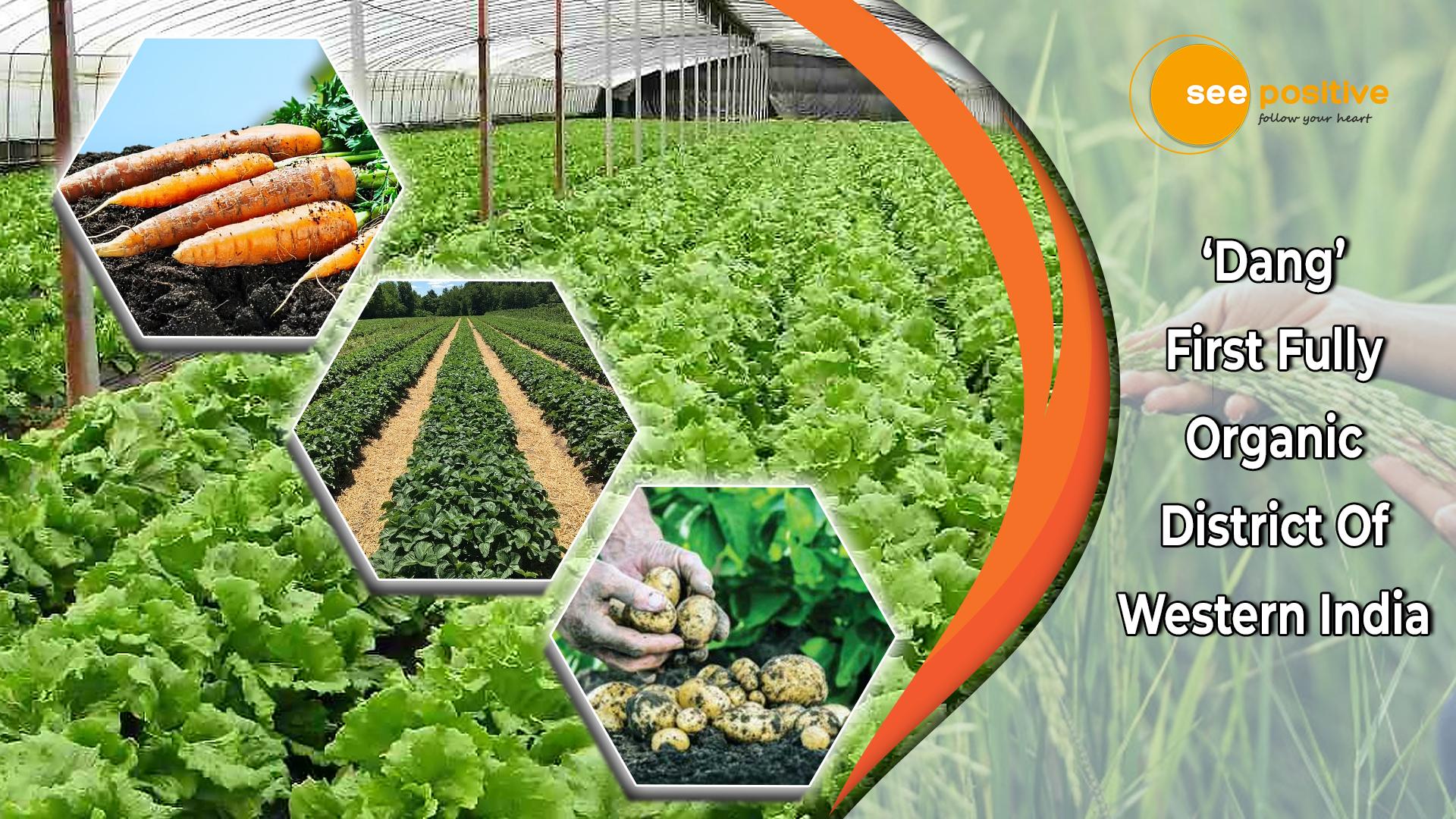

“With wrong farming methods, we turn fertile land into desert. Unless we go back to organic farming and save the soil, there is no future.”- Jaggi Vasudev
India’s land is loosing its fertility by using synthetic chemicals. The above statement of Jaggi Vasudev is true in every sense that if farmers don’t switch to organic farming from inorganic farming in time, then it can be prone to the future, human health and environment. If we talk back to the year 2016 , Sikkim became the first state in the world to become the fully organic .Now-a-days the tribal district of Gujarat , Dang is in news to be declared 100% organic . After Gujarat Governor Acharya Devvrat decleared Dangs district fully organic it became the first in entire western side of India to be formally declared.
What is Organic Farming?
Organic farming is an agricultural form or strategy that emphasizes crop rotation and companion planting while utilizing organic fertilizers for example compost manure, green manure. It began in the early twentieth century as a reaction to rapidly changing agricultural techniques.
A step towards organic India
The state government is offering each farmer in the predominantly hilly area a subsidy of Rs. 10,000 per hectare up to a maximum of two hectares for adopting organic agricultural methods.
Most of the farmers in Dang, practice traditional farming. In the remaining areas they grow rice and millet (Nagali), the local staple crop. In some places they use fertilizers for growing rice. The state government has announced that farmers will be granted a subsidy for converting it to organic farming.
Farmers are also encouraged to use cow dung and urine, and they are given Rs. 900 for raising livestock.
Benefits of Organic Farming
• Promoting Biodiversity – Rotating crops that increase soil fertility and raise animals naturally help promote biodiversity and promote the health of all living species. As organic farms provide safe sanctuaries for wildlife, local ecosystems are also improving.
• Agricultural Pollution Reduction – Although “agricultural smog” is not real, traditional agriculture creates its own forms of pollution from the runoff of synthetic fertilizers and chemical pesticides that damage surrounding areas. Since organic farming removes harmful chemicals, the environment benefits. Organic farming improves the quality and fertility of the soil, it also reduces the risk of groundwater pollution and rehabilitates the soil in areas where water damage has already occurred.
• Good taste and quality of Food – It’s not your imagination: organic food really tastes better than products that come from conventional agriculture and methods. Organic products tend to have lower nitrate levels than non-organic varieties, resulting in fruits that not only taste sweeter, but also have higher antioxidant levels. Science shows that organic farming is not only tastier, but better for you too.
• Fewer environmental pollutants – It is well known that lesser the use of chemical fertilizers better the fertility of soil . When the proportion of organic farms increases, the environment also benefits.
• Better Soil Quality – Cornell University research shows that $ 40 billion is lost annually to topsoil degradation caused by conventional agriculture’s reliance on chemical fertilizers. The healthier soil, in turn, would produce vegetables and fruits with higher amounts of minerals and micronutrients.
• Helping the fight against climate change – Organic farming reduces the use of non-renewable energies by avoiding the use of pesticides and chemical fertilizers, the production of which requires large amounts of fossil fuels. Organic farming also releases more carbon back into the soil, which then reduces the Greenhouse effect and global warming.
Looking way forward
Farmers in India have been tilling their soil without the use of pesticides for millennia, relying mostly on organic leftovers, cow dung, composts, and other natural resources. This is also in line with SDG 2’s goal of “end hunger, achieve food security and improved nutrition, and promote sustainable agriculture. “As a result of increased knowledge, greater awareness and capacity building among producers in accordance with international standards, Indian organic farmers will soon reclaim their proper place in the global agribusiness.


